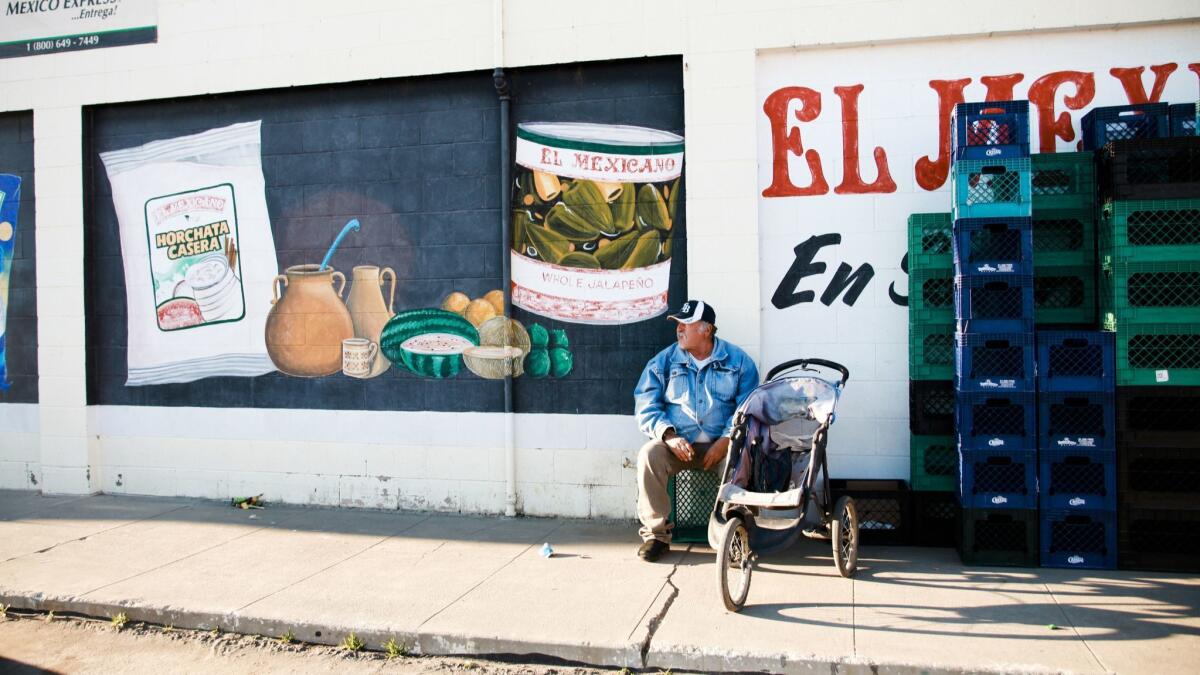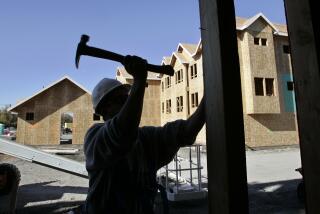Column: Nearly all of California’s crises are worse in its Latino communities, new report says

Five years ago this month, the demographic face of California changed for the first time in its modern history. Latinos became the state’s largest ethnic group — gaining a newfound dominance, though one that had been expected for decades.
But a new report offers a sober look at a different marker of distinction, one that shows Latinos fare worse than their fellow Californians on nearly every big quandary the state faces, even as its economy grows. And while things have improved in California, they have improved less for Latinos than for almost everyone else.
“There are just these huge gaps,” said Mindy Romero, director of the California Civic Engagement Project at USC. “There’s a lot of work to be done.”
Romero’s research was published last week by the California Latino Economic Institute, a nonprofit that includes a broad cross section of business, education and government leaders. In example after example, the 43-page report chronicles the struggle of Latinos to keep up with white and Asian American residents. African Americans in California have failed to keep pace too but are a much smaller part of the state’s population.
Almost every problem elected officials have struggled to solve seems even worse for Latinos, who have almost double the poverty rate of white Californians and less than half the growth in household income over the last two decades compared with Asian Americans. Nowhere is that more evident than in the Bay Area, where Latinos have a median income of almost $37,000 less than Asian Americans. The gap in comparison to white residents is even larger.
For Californians, the golden dream depends on where you live and how much you earn »
The researchers also uncovered clear evidence of just how hard the state’s housing crisis has hit Latinos. The data suggest 80% of Latinos in California don’t earn enough to buy a home selling at the state’s median sales price. Others are also struggling to become homeowners, but the relatively low wages of many Latinos — almost half of whom work in service and office support jobs — make it that much harder.
Fewer Latinos own homes than their white neighbors in every region of California, led by a 24-percentage-point gap along the Central Coast. Nor are the homes they live in of good quality; the report finds 62% of Latino households in the Los Angeles region are “substandard,” defined by federal guidelines as having inadequate kitchens, bad plumbing, being overcrowded or overpriced.
Educational inequality further complicates the picture. The report notes that many Latino students are “disproportionately attending segregated and underperforming schools” and have less access to the resources that would prepare them for college. Latino students have high school graduation rates below the overall state average. Fewer than 1 in 3 young Latino men do well enough in their studies to be eligible for admission to a University of California or California State University campus. And no ethnic group has a smaller rate of success at earning a four-year college degree — nor has any group seen such anemic improvement in those numbers since 2000.
What California’s leaders might do with the new report remains to be seen. Latino representation is at its zenith in the Legislature and strong too in the delegation to Congress. Lawmakers have taken strides in the latest state budget to improve the lives of those who struggle the most, but no subgroup of Californians is both so large and so behind.
“The well-being of Latinos impacts the overall well-being of the state,” Romero said last week. “We need to start having some really honest conversations.”
Follow @johnmyers on Twitter and sign up for our daily Essential Politics newsletter
More to Read
Get the L.A. Times Politics newsletter
Deeply reported insights into legislation, politics and policy from Sacramento, Washington and beyond. In your inbox three times per week.
You may occasionally receive promotional content from the Los Angeles Times.











